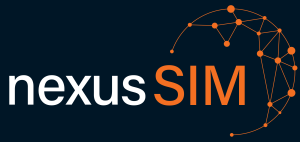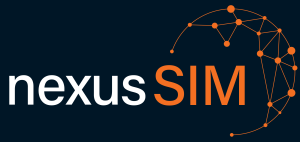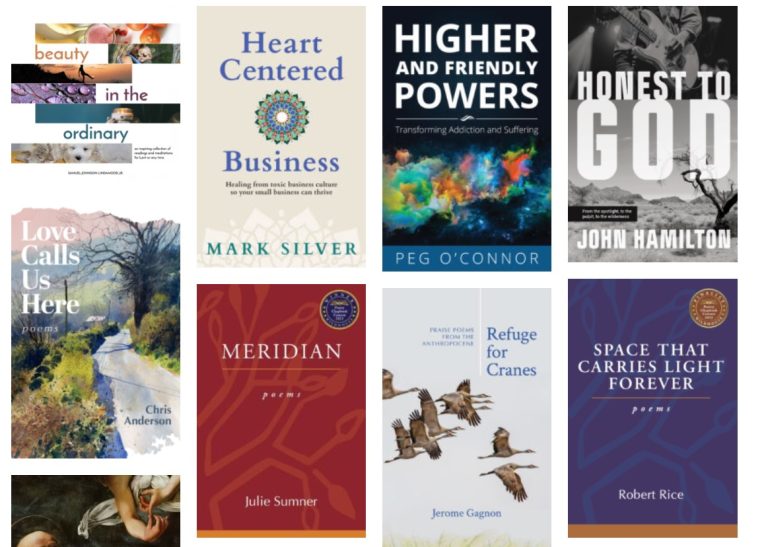
We recently interviewed CMAC Postdoctoral Fellow and Executive Assistant Dave Rohr about The Book of Uncommon Rituals, part of a CMAC research project that is being facilitated by Wildhouse Publishing.
This project connects Ritual for the Nonreligious, a CMAC project, to a practical and tangible outcome, right? Can you describe how this idea for a “Book of Uncommon Rituals” came about?
Dave: Well, it was a part of the original grant application for the Ritual for the Nonreligious project. Two-thirds of the project is research-oriented, collecting a large quantitative data set and a large qualitative data set with semi-structured interviews, and then the third part is to publish several volumes of books that include rituals that are for nonreligious people or spiritual-but-not-religious people.
They’re basically for use by other non-religious people. They could be secular chaplains or just spiritual-but-not-religious people who are looking to incorporate more rituals into their lives to help structure them, whether it’s daily rituals like mindfulness meditation or a gratitude, practice, that type of thing. Or they could be rituals for big moments in life, like a wedding service that doesn’t talk about God or Jesus, or anything like that, but still like celebrates this incredibly important moment for people.
I don’t know if you’ve ever been to a service like weddings and funerals for friends who are secular, but then you get some very religious local preacher performing the service. And it doesn’t ruin it, but it really takes a lot away. When the preacher’s message, “This is what the meaning of this all is – it’s all about Jesus,” and that’s just not what the meaning is for the main people involved. I really don’t like that. But the thing is, there’s just not a lot of ready-to-hand ritual services for non-religious people. If you want a book of Christian rituals, a book of Buddhist rituals, there’s so much stuff out there. But, if you want ritual practices that are not religious in orientation, then there’s not a whole lot. So we’re trying to fill that gap.
Beyond the awkwardness, could you say a little more about why it’s important to have those rituals for non-religious people? Is there some deeper kind of thing beyond just “let’s not be awkward with a Christian preacher at a secular wedding?”
Dave: I’m not saying it’s important for all nonreligious people, that they must have rituals. Some people are totally content without them. But rituals can be deep practices that can help with things like virtue cultivation if you want to practice mindfulness, staying more present in the moment, being more awake to your life. There are things you can do that will help with that. If you want to be more grateful, you can establish a practice of gratitude, and it will anchor you.
Rituals can have that effect. They can also be important in a relationship, if you have a ritual of checking in or “highs and lows” for the day. That’s a very basic thing that a lot of families do. It’s almost at the level of not exactly a ritual, but if you do it every day, it is a ritual, and it can be a really important way to stay in touch with people.
So rituals can be designed to do all kinds of different things, beyond just the big moments in life. Rituals are an important way of marking time passing. I think it’s a way that human beings have anchored their sense of meaning, helped their communities to be cohesive, and developed personal virtues as well. There’s no reason you can’t do those as a non-religious person, but it’s just that they’re less ready-to-hand.
Keeping in mind that obviously there are diverse set of rituals even that you just mentioned, could you say a little bit about what an ideal contribution to this book of uncommon rituals would look like. Are there characteristics that the team is looking for?
Dave: Well, there’s not specific characteristics that we’re like, “We want this exact thing.” We don’t know exactly what we’ll get. All we really want is rituals that people actually practice that are important to them, that are something that you know are not chock full of a bunch of religious references that will exclude spiritual-but-not-religious or nonreligious people.
In terms of things that we’ve heard of already, one thing that stands out in my mind is a chaplain describing a divorce ritual they developed for two non-religious people. I think divorce rituals in general are a great idea, and religious traditions don’t tend to do that either, because often they don’t celebrate that moment. And it doesn’t mean it has to be a celebration, but still marking it and saying, “Look, we’ve come a long way together. This is meant a ton to both of us, but we’re going to go our separate ways.” I think in the ritual they actually met and then walked off in separate directions, to be able to in a formal way acknowledge what’s happening, to share what this all has meant, to give each other blessings as you part. I think that’s beautiful and would really help a lot of people through a very difficult thing to experience in life.
Something like that would be amazing, but I expect we’ll get a great diversity, some of them just more personal, some of them community-oriented; some of them for the big moments in life, some of them for the small moments in life. What we really want is a large diversity of rituals. That’s what we’re hoping for. We’re hoping to have a problem of figuring out how we want to thematically organize the books.
What’s the current status of the project?
Dave: We’re starting to invite submissions in July 2024. We’ve got our whole research design created. We’ve developed several novel scales for the quantitative project. So we’ve been getting everything into place. And now we need to apply for the IRB (Internal Review Board) to approve the whole project.
We don’t really expect that requesting ritual submissions is going to be considered human subjects research. The board will probably just say, that’s totally fine, you don’t need to consult us about it any further. That’s what we expect. But we want to just be extra careful. People are sharing personal information including their names (as long as they are comfortable, that is). That information will be published along with the ritual in the book. Once we’ve got that approval we’ll launch.
This project is a little bit unique in that it’s bringing a CMAC research project into a connection with this Wildhouse Publishing project at the same time, right? And these are 2 different aspects of Just Horizons Alliance. Do you want to say anything about that?
Dave: Yeah, it’s true, they’ve mostly been on separate tracks. Although, to be fair, Richard Sosis, the co-primary investigator (PI) on the Ritual for the Nonreligious project along with Wesley Wildman, published an amazing book at Wildhouse Publishing called The Ping Pong Player and the Professor. It’s about his son who is an almost Olympic-level ping pong player, so he’s spent his childhood with Rich and him traveling all around to different tournaments. And, you know, Rich is an anthropologist. It’s half an anthropology of the ping pong community and half like a love story of him and his son. And it’s really beautiful. I’ve never read a book like it, anyway. So that’s one other kind of overlap, although that wasn’t associated with a grant or any specific project, but it’s a fascinating book.
Also, I just think it’s cool that we have Wildhouse Publishing ready to go. We can publish these books of rituals; it’s all set to go. We can promise that in advance, instead of saying, “We will try to publish a book about this” it’s like, “We will publish a book of rituals.” So that’s nice, and we can coordinate on both teams, the book publishing team and the research team. It’s a nice synergy. It really works.
Lastly, I was wondering if you wanted to say anything more about how you envision the future of this project and where it’s going. You mentioned that there might be more than one volume of the book.
Dave: Well, in terms of the number of volumes, it really depends on how successful we are at recruiting submissions. If we’ve got a bunch of quality submissions then we could have up to 3 books of rituals, which would be amazing.
It’s also possible that we’ll leave it open-ended and continue collecting rituals and a volume will trickle out every 3 or 4 years. We’ll see how it goes in terms of what we get. But that’s the uncertain future of the Book of Uncommon Rituals side of the project.



